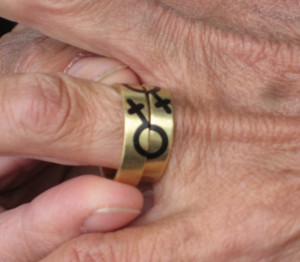Stories of discrimination in Washington, Nevada, and Missouri have raised questions about how well hospitals are following these regulations, especially for the LGBT community. People have been barred from hospital rooms where their partners were dealing with serious medical issues. This despite the fact that they often had documents showing their legal partnerships.
“We do advise our members and people who come to us for advice to have legal documents that protect them, but [there are] these cases of hospitals ignoring it,” said Cindy Butler, executive director of Unmarried Equality, a Seattle-based advocacy organization for unmarried people.
Under the new visitation policy, hospitals that fail to respect a patient’s visitation wishes can get their Medicaid and Medicare funding pulled.
But the visitation policy doesn’t explicitly mention nursing homes or hospice facilities. While other long-standing rule give partners the right to visit, many have been turned away, according to Maya Rupert, with the National Center for Lesbian Rights.
“When we tell [the facilities] that is the rule we’ve gotten push back very often saying that the hospital visitation rule doesn’t apply,” said Rupert.
NCLR hopes to get the Department of Health and Human Services to reaffirm that policy.
“We’re talking about people in life and death situations, so we really can’t have someone call a lawyer to get in and see someone,” said Rupert. “We don’t have time for that.”
The 2011 rules also do not cover one key area: medical decision making for patients that are unconscious and unable to speak for themselves.
In California, hospitals are required by law to treat domestic partners the same as married people. But again, decision making becomes an issue when LGBT couples travel to states where their marriage or partnership isn’t recognized.
“What we keep seeing is that the partner claims they are the correct decision maker," says Rupert. But "they’re not legally married in the state, and an estranged family member also claims they are the decision maker. In most states, the estranged family member is going to trump the partner.”
If an unconscious patient had not previously named someone to make medical decisions for them in a legal document, then each state will follow its own rules -- usually defaulting to the blood relatives.
One way around this confusion is for people to complete and carry what's called an advance health care directive form. You designate a specific person who can make decisions for you.
Today’s Supreme Court ruling does nothing to change the situation because each state determines who gets to make medical decisions. Advocates want a similar rule for medical decision making as was passed for visitation; a federal rule that would protect the rights of married, partnered, and single people alike whatever local law may be.
Update, July 2: The Centers for Medicare & Medicaid Services (CMS) have formally clarified their position on visitation rules at long-term care facilities, such as nursing homes and hospice centers. According to CMS, these facilities must give equal visitation rights to same-sex couples. As noted in our post, this has been a major point of confusion as some of these facilities believed they were exempt from the 2011 Hospital Visitation Rule. The new CMS memo makes the rule clear:
“Residents must be notified of their rights to have visitors on a 24-hour basis, who could include, but are not limited to, spouses (including same-sex spouses), domestic partners (including same-sex domestic partners), other family members, or friends.”
